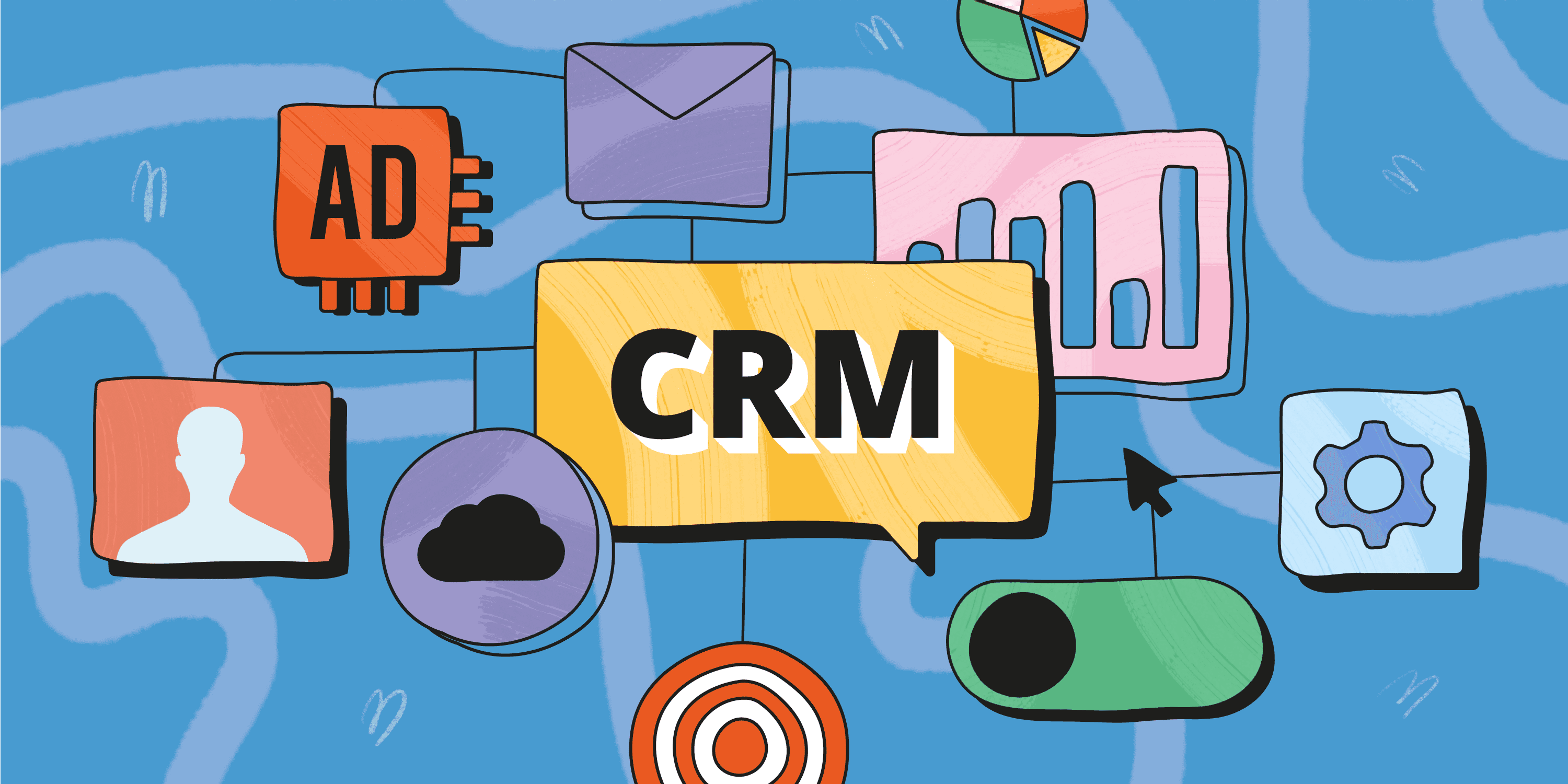Over the years, customer experience has become of utmost importance for every business. Businesses that offer exceptional customer service can set themselves apart in the industry.
Therefore, it’s crucial to utilize the necessary tools and resources to maintain an upper hand in this competitive marketplace. These resources will boost customer experience and increase your sales and revenue.
One of the best tools modern businesses can use is custom relationship management (CRM).
What Is CRM?
CRM is a system that assists business owners in keeping track of all customer communication, history, and profiles. Gone are the days when businesses have to track and record customer data on spreadsheets, databases, and piles of documents.
These traditional methods can be time-consuming and prone to errors. CRM integration makes it easier to streamline customer service strategies and ensure leads and prospects follow through.
The primary purpose of a CRM system is to ensure that businesses are up-to-date with customer data and ensure a personalized experience.
Additionally, the system stores necessary data, such as customer profiles and prospects, in a centralized location, making it easier for team members to access.
The information stored in a CRM system can be used to perform market research and generate business reports. Most of all, the data can be used to improve marketing strategies and customer relations.
That’s because patterns in customer behavior and preferences can be analyzed from purchase history and other data stored in the CRM.
Before choosing and investing in a CRM tool, consider going through HubSpot CRM review and other articles to ensure you choose the right one for your business.
5 Signs Your Business Needs A CRM System In 2023
A CRM system is a good investment for any business, but before you spend money on such a tool, you must make sure that your business needs it. So, below are five signs that can help you assess whether your business needs a CRM system in 2023:
- Decreased Efficiency
This is one of the signs you need to invest in CRM this 2023. Businesses have used manual processes such as spreadsheets and paper approvals for many years when managing sensitive customer data.
This traditional method is time-consuming and inefficient.
However, CRM integration will help automate your processes, such as data entry. It also creates centralized data storage, making it easier for authorized individuals to access, boosting collaboration and ultimately improving productivity.
Besides, team members can use the saved time to focus on other aspects, such as optimizing marketing strategies and improving customer engagement.
- Poor Data Maintenance
When you start a business, it can be easier to manage sensitive customer data using manual processes. However, handling an ever-growing database might become challenging as your business expands.
Also, it might be hard to get the necessary data when needed, which can affect customer experience and support.
Besides this, poor data maintenance can expose your sensitive data to cyber criminals and malicious hackers.
With a CRM system, your data is secured in one network, which can be integrated with cybersecurity measures to protect it.
With a central platform for customer data, it’s easier to organize and safely keep the information. In addition, access can be controlled from within the organization—allowing your business to decide who gets to have data access.
- Missing Out On Sales
Decreasing revenues is alarming for any business, and one possible reason for this is the disconnect between your business and its prospects and customers.
You’ll have to nurture leads to make a sale. When you’re tracking your sales leads manually, it might be challenging to nurture them effectively; hence, you can miss out on sales opportunities.
This leads to reduced revenue, which can slow down your business.
However, you can integrate a CRM with your marketing strategy to avoid missing sales opportunities.
The system can automatically notify the sales team when to follow up on leads, boosting customer relationships and increasing the possibility of closing sales.
Additionally, it’s easier to access the stored data to know where you can pick up on the lead nurture program.
- Poor Customer Service
When a business does not understand the needs and wants of its target market, offering services and products that exceed expectations will be difficult to achieve.
Hence, your team may spend most of their time resolving customers’ complaints instead of attracting leads and
However, integrating a CRM system makes it easier for them to understand your target audience more deeply.
Hence, you’ll be able to deliver quality services and ensure a positive customer experience, attracting more conversions, retention, and referrals.
Additionally, CRM allows you to train new team members more easily. Such a system allows employees to be on the same page since all the resources and data are in the same network.
Every employee can review customer data, purchase history, and even sales reports with proper access.
- Frequent Miscommunication Between Departments
If your employees frequently deal with communication issues, then it may be time to invest in an appropriate CRM solution. Manual methods are very prone to human error, and many conflicts can arise from them.
These internal conflicts can ultimately affect your customers since they may have to deal with inconsistent procedures.
Thus, customers might be bounced on and off or given wrong answers when they have concerns or inquiries. This can affect your reputation and credibility as a business.
It can also make you lose sales, especially when there’s confusion about shipping and return policies.
CRM integration bridges the gap between departments and brings transparency into a business. Thus, each department can easily track or access necessary documents, ensuring customers get accurate information.
Bottom Line
As discussed above, a CRM system may greatly ensure your business can deliver an exceptional customer experience. With good customer engagement and relations, customer retention and sales can increase.
Despite these benefits, assessing whether your business can benefit from a CRM system can be challenging. The signs discussed above could help you make the right decision.
Such signs include decreased revenues, frequent miscommunication, poor data maintenance, and more.






